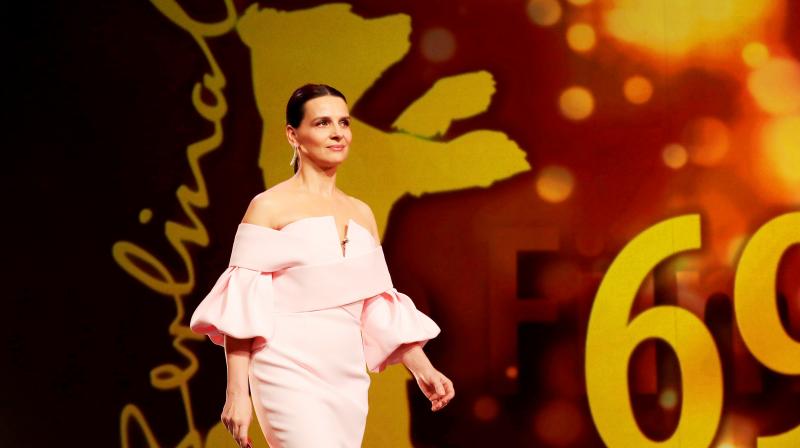Women shine bright at the Berlinale 2019
Women filmmakers had a record showing at the Berlin Film Festival 2019.

Berlin: The voice of the female filmmakers was louder than ever at this year's Berlin Film Festival, with seven out of the 16 films in the competition section helmed by women and female directors from all corners of the globe featured prominently.
The number of women-directed films in competition was the most in the festival's 69-year history. In addition, the festival's selection committee was overwhelmingly female. However, male-directed films were still the majority of films represented, at approximately 55 per cent, according to the festival.
This year's festival was also known as the Berlinale. It was rich with global women telling female-focused stories, including Michela Occhipinti's feature debut "Flesh Out," about the practice of gavage, the forced fattening-up of young girls before their weddings in Western Africa. "We are half, maybe more than half the population," she said of women. "(We are) feeling something different."
Other female-centered stories included Macedonian director Teona Strugar Mitevska and her feminist satire "God Exists, Her Name is Petrunya," ''37 Seconds," a tender story from Japan about sex and disability from Hikari, and Austrian filmmaker Marie Kreutzer's "The Ground Beneath My Feet," which looks at a high-performing career woman struggling with a sister with mental illness.
There was also the black-and-white lesbian love drama "Elisa and Marcela" from Spanish filmmaker Isobel Coixet. British director Joanna Hogg presented her fourth feature film, "The Souvenir," which followed a young girl through film school in the 1980s.
Part autobiographical, part fiction, "The Souvenir" stars Honor Swinton Byrne as a student filmmaker alongside her mother, Tilda Swinton, who plays her on-screen mom. Hogg said she wants to encourage more women to make films and explains that one of the reasons for making the movie was to show a woman as an artist.
Swinton, who has directed documentaries, says for her, the role models have always been there. "I personally as a filmmaker was always aware of the great comradeship of female filmmakers. And you don't have to look very far to know how many female filmmakers have always been making films. It just, they don't necessarily get the column inches" in the press, she said.
That wasn't the case for Danish director Lone Scherfig, who opened this year's festival with "The Kindness of Strangers." She says she didn't have much inspiration from women filmmakers or the female characters she watched on screen growing up in Denmark.
"Women were always happy and pretty and I, even as a little girl, would go to the cinema in a starched dress with a bow and dress up in order to go to the cinema to watch those women and wanted to be them," she recalled.
She says for her it was a big jump to making films "instead of just sitting, being, wishing you were Audrey Hepburn." Sitting pretty is far from the minds of many of today's women filmmakers, and the characters they create on screen are also challenging gender stereotypes.
Indian filmmaker Zoya Akhtar was in Berlin for her movie "Gully Boy," which looks at the urban rap music scene in India. She feels today's women filmmakers are not only writing exciting female characters but "legitimate men."
"It's really important to see how we see men and how we want to see men and what we think is heroic and what we think is something worth saluting," she said. "And it needn't always be larger than life and it needn't be that kind of toxic masculinity, because that's not what we want."
Bollywood superstar Alia Bhatt stars in "Gully Boy" as the feisty, charismatic Safeena. She says she is often approached with offers of "strong female characters" or "female-led stories" but jokes that she hopes for a day when that doesn't need to be highlighted. "Just get me a film and just be like you've got a good part. That's it you know?" she said.

